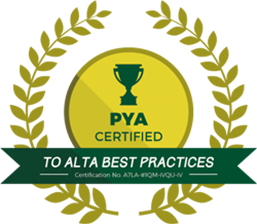
When considering purchasing an additional property outside of your primary residence, you will need to decide if it will be an investment property or a second home. This distinction will impact your interest rate on a potential mortgage, as well as how you qualify for the loan and what you can do with the property. As one of the top 3 title and settlement agencies in the DC Metro region, Champion Title has the information you need to help you make this decision. Read on to find out what defines an investment property vs. a second home, and the pluses and minuses to both.
First, what is an investment property? A new home purchase is considered an investment property when the purpose of the purchase is to generate income and the purchaser will not be living in it. They can be single to 4 unit properties and in most cases the purchaser does not have to put down a full 20% to qualify for a mortgage, making it more affordable. Borrowers can, however, include projected income to be generated from the property as part of the overall qualifying income. There are other specific documents that must be provided if you plan on using projected income. And remember, a property you plan to renovate and flip can be considered an investment property as well, not just rentals!
Then what is a second home? A second home is a property that the purchaser must live in for some part of the year. Also, the purchaser must own a primary residence, and the second property must be available for personal use more than 6 months out of a calendar year. This does not prohibit owners from renting out their second home as well, as long as these requirements are met. In addition, owners must have exclusive control over the property and it can only be a single unit.
Why are these distinctions significant? As mentioned, the different categorizations will affect how you qualify for a mortgage as well as how you can use the property. Under both options, purchasers do not have to put down a full 20%. But, an investment property will typically have a higher interest rate than a second home. While you can rent out a second home, the projected income stream from this cannot be used to qualify for the mortgage, whereas with an investment property it often can. Some lenders may require that the second home property be located 50 to 100 miles away from the primary residence, but an investment property can be located right next door. Lastly, to qualify for either an investment property or second home mortgage, you may be required to show proof of reserves. This would consist of cash on hand that can cover a certain number of months of expenses such as principal, interest, taxes and similar. Reserve requirements for investment properties are usually higher.
Looking to purchase an additional property? Decide which type is right for you, then give Champion Title a call! No matter which you choose, we will be happy to guide you through the settlement process stress-free. For more information visit our website at www.championtitle.com or call us with questions at (703) 444-4100.










